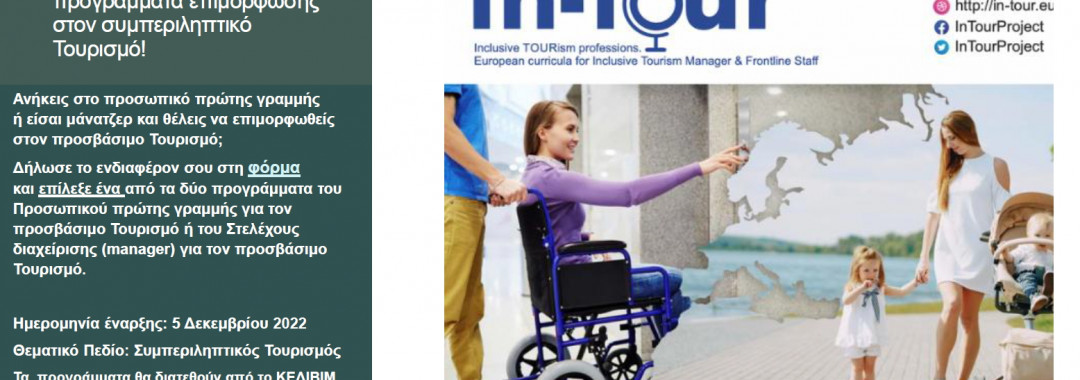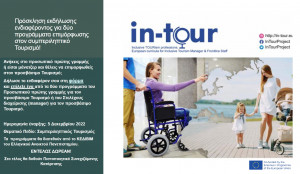The exchange seminar of the Innovation Station project, co-financed by the European Commission Erasmus +, took place on 5-8 November 2022 in Brussels, Belgium hosted by OBESSU, the coordinating organization of the project. The aim of the workshop was the exchange of views of teachers and students on online (and blended) teaching and learning, the exploration of various methods and practices in online education, the identification of new ways of learning for students that aim to increase their participation in the online classroom and the promotion of self-directed learning.
The exchange seminar was attended by 35 teachers and high school students from Austria, Belgium, the Czech Republic, Greece, Italy, Slovenia, Turkey, and Greece.
During the four-day meeting, several workshops were held, presentations were given and some of the project’s research work was promoted. In particular, good practices of distance education, and structural problems encountered by the participants such as problems with internet access, limited connection to online courses, etc. were presented. Reference was also made to the problems of students such as lack of technological infrastructure, unequal digital skills, lack of technical support, etc. Regarding the problems of teachers, these were related to the lack of digital skills, time management, lack of motivation, bureaucracy, lack of uniform ICT tools, etc. In addition, reference was made to the socio-emotional experience of both students and teachers as well as the pedagogical challenges encountered.
The innovation of this workshop was the equal participation of teachers and students in the exchange of views and ideas on distance teaching and learning during and after the COVID-19 pandemic. Both teachers and students had the opportunity to share their experiences and make recommendations for good practices, methods, and tools that will shape future sustainable education.
Six short interviews were conducted with 3 students and 3 teachers from EU countries who attended the event. They expressed their satisfaction with the knowledge they gained and their willingness to participate in future educational activities.
If you or your institution are interested in “Innovation Station” and would like to contribute, benefit or just follow the development of the project, you will find us in the following:
- Website DAISSy and Project’s site: http://daissy.eap.gr/en/, https://www.innovationstationproject.eu/
- Facebook: @DAISSyResearchGroup
- Linkedin: https://www.linkedin.com/in/daissyresearchgroup/
- Twitter: https://twitter.com/daissy_research
- Instagram: @daissy_researchgroup
- Email: info@daissy.eap.gr

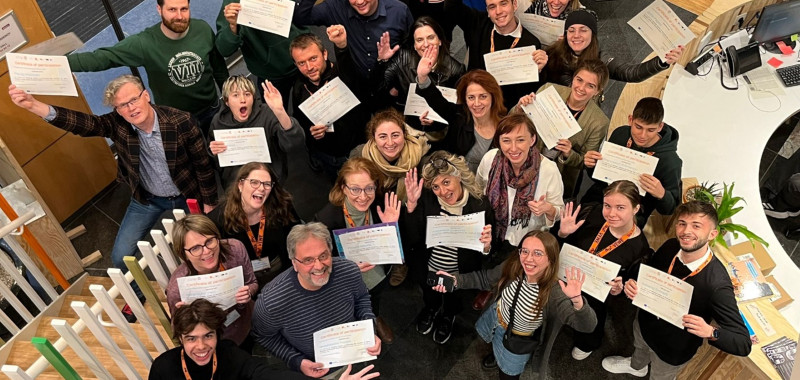
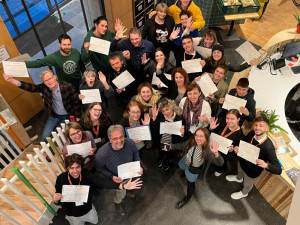
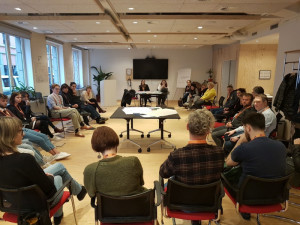
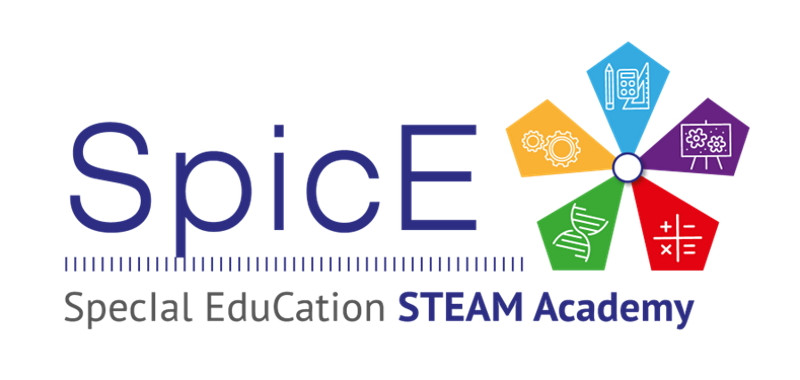
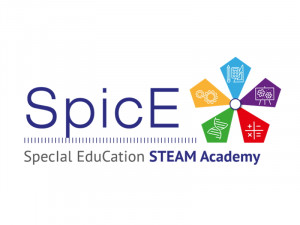 Το πρόγραμμα SpicE (Special Education STEAM Academy) στοχεύει στην ενίσχυση των ικανοτήτων των εν ενεργεία και μελλοντικών εκπαιδευτικών Πρωτοβάθμιας Εκπαίδευσης Ειδικής και Γενικής Αγωγής στην αποτελεσματική σχεδίαση και υλοποίηση συμπεριληπτικών προγραμμάτων STEAM, προκειμένου να προστατεύσουν τους μαθητές/ήτριες με Ήπιες Εκπαιδευτικές Ανάγκες τόσο από τον εκπαιδευτικό όσο και από τον κοινωνικό αποκλεισμό.
Το πρόγραμμα SpicE (Special Education STEAM Academy) στοχεύει στην ενίσχυση των ικανοτήτων των εν ενεργεία και μελλοντικών εκπαιδευτικών Πρωτοβάθμιας Εκπαίδευσης Ειδικής και Γενικής Αγωγής στην αποτελεσματική σχεδίαση και υλοποίηση συμπεριληπτικών προγραμμάτων STEAM, προκειμένου να προστατεύσουν τους μαθητές/ήτριες με Ήπιες Εκπαιδευτικές Ανάγκες τόσο από τον εκπαιδευτικό όσο και από τον κοινωνικό αποκλεισμό.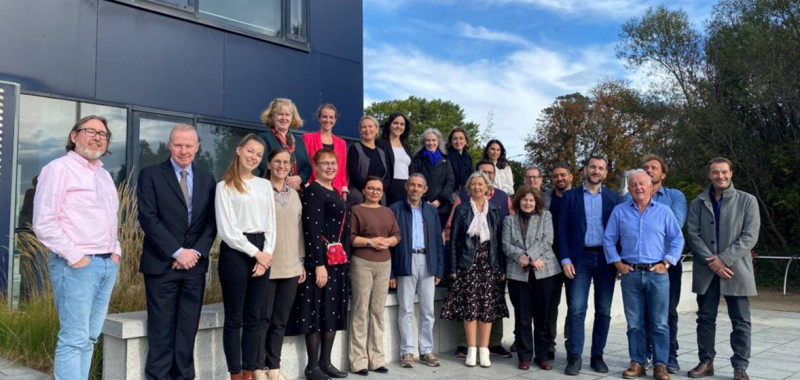
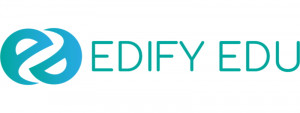 The transnational partners’ meeting of the ‘
The transnational partners’ meeting of the ‘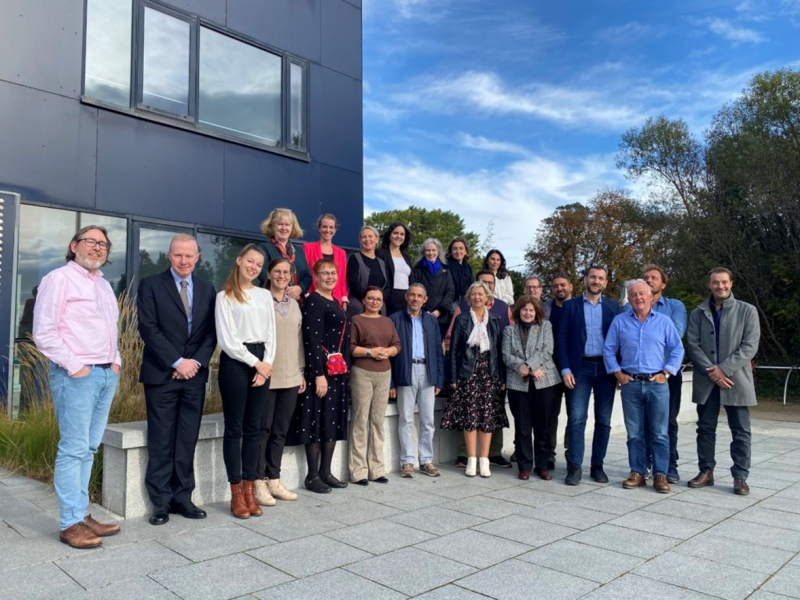
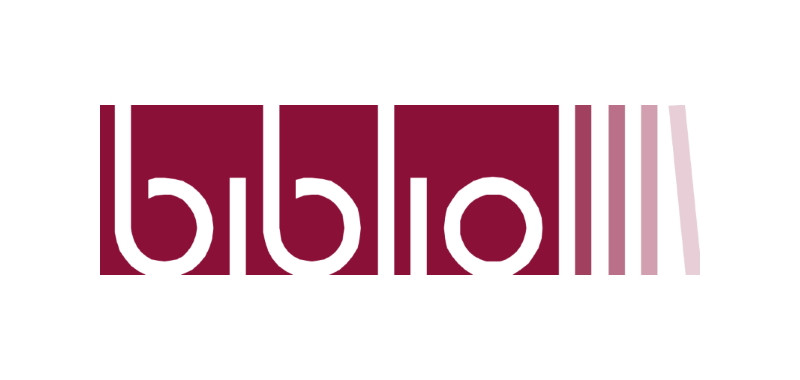
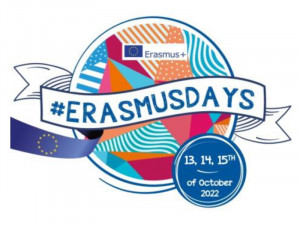 The DAISSy Research Group of the Hellenic Open University (HOU), the Greek project partner, presented the “
The DAISSy Research Group of the Hellenic Open University (HOU), the Greek project partner, presented the “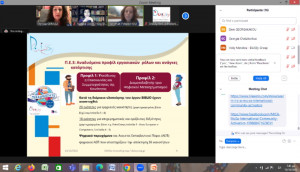 Furthermore, Leonidas Papachristopoulos, Librarian and trainer at BIBLIO MOOC, referred to the results of the completion of the
Furthermore, Leonidas Papachristopoulos, Librarian and trainer at BIBLIO MOOC, referred to the results of the completion of the 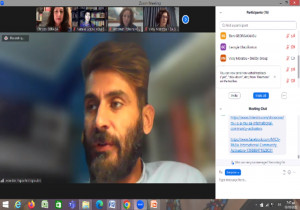 Stay tuned and remember to visit the site of the BIBLIO project and check the “Stories” of the BIBLIO partners!
Stay tuned and remember to visit the site of the BIBLIO project and check the “Stories” of the BIBLIO partners! 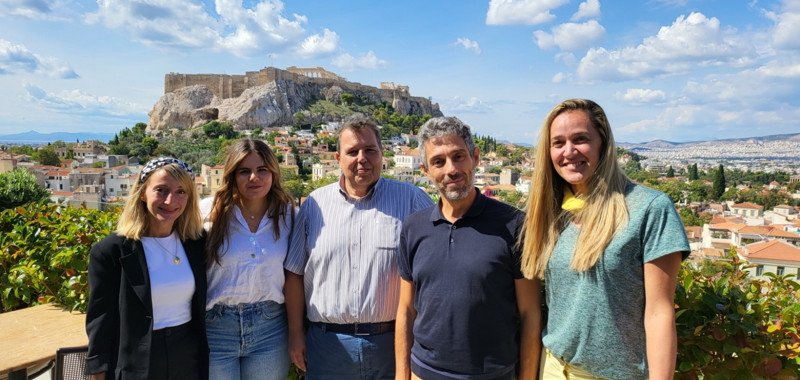
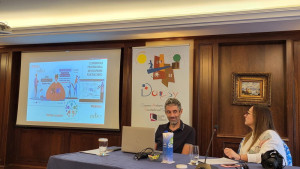
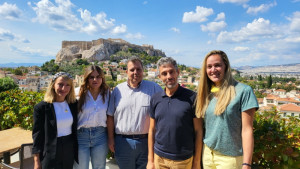
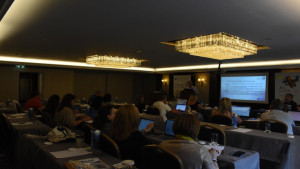
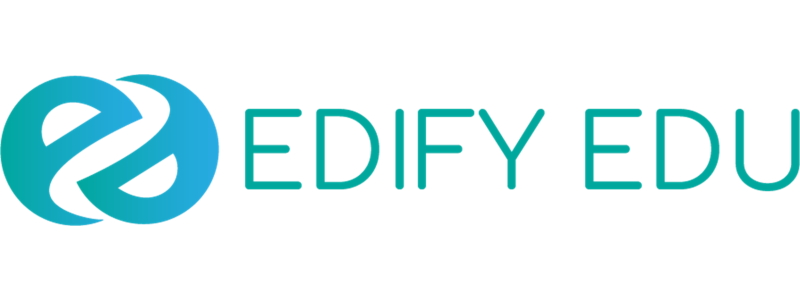
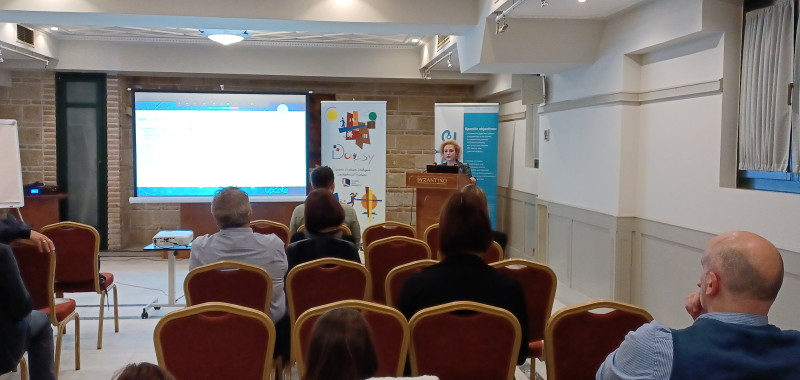
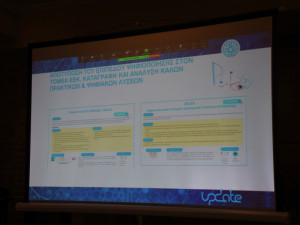
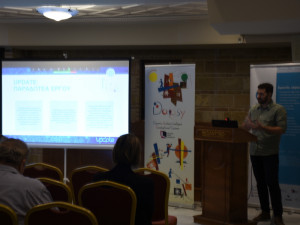
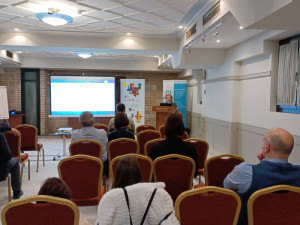
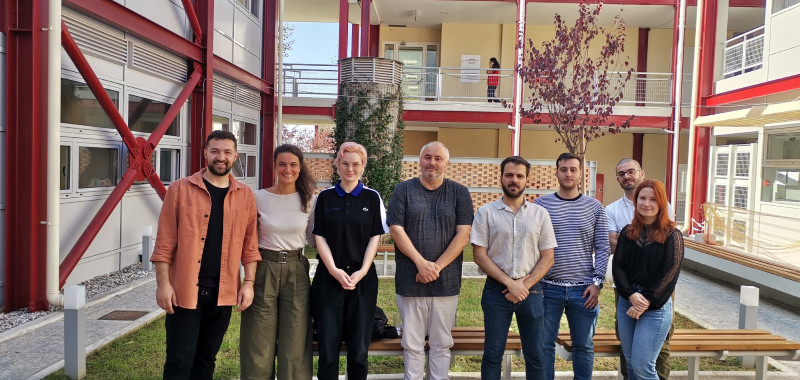
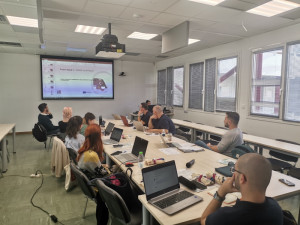
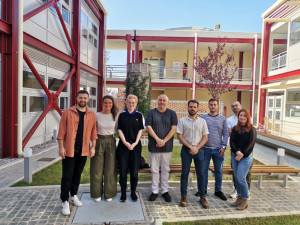
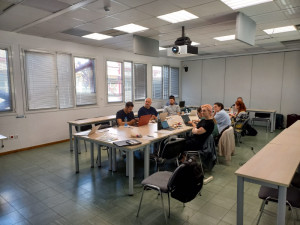
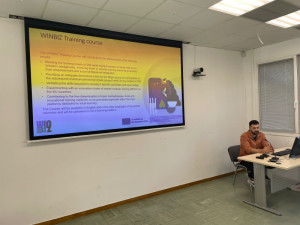
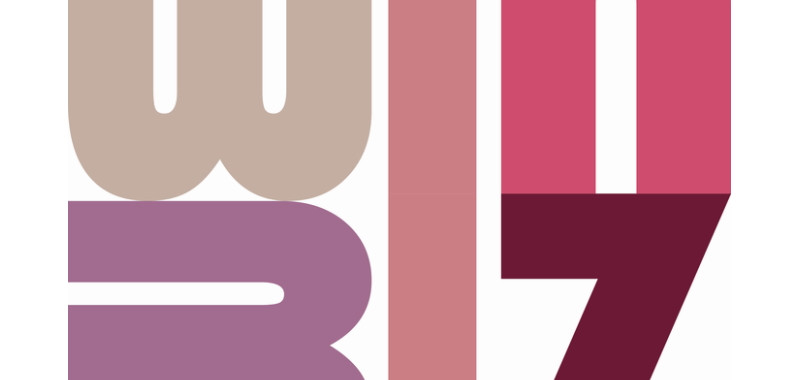
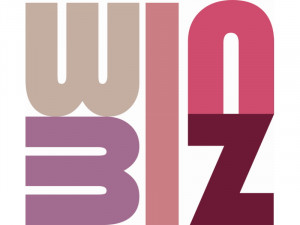 In the frame of the Skills Development and Employability Support pillar of the «Harmonising Protection Practices in Greece» (HARP), ASB hosted the DAISSy Research Group – Dynamic Ambient Intelligent Sociotechnical Systems of the Hellenic Open University (HOU) – for an info-session on Women entrepreneurship, with the support of DG HOME and in cooperation with IOM.
In the frame of the Skills Development and Employability Support pillar of the «Harmonising Protection Practices in Greece» (HARP), ASB hosted the DAISSy Research Group – Dynamic Ambient Intelligent Sociotechnical Systems of the Hellenic Open University (HOU) – for an info-session on Women entrepreneurship, with the support of DG HOME and in cooperation with IOM.